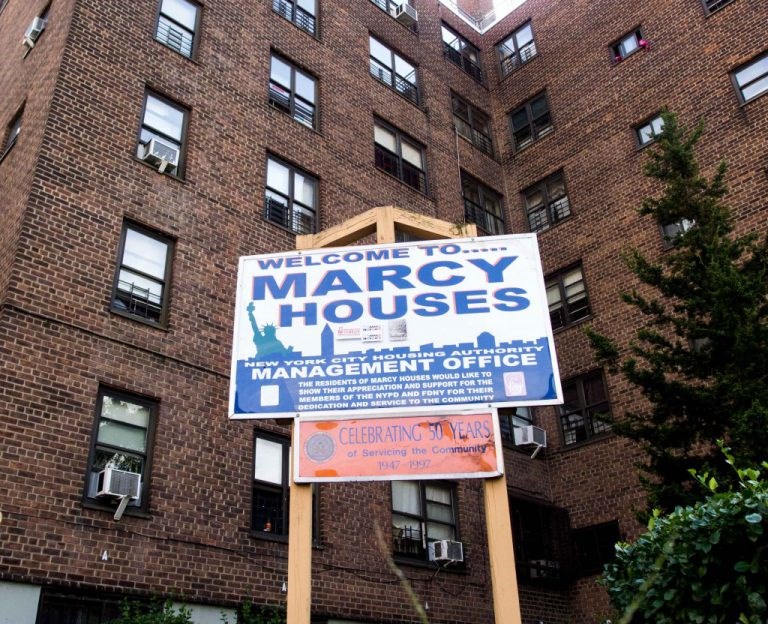Mayor Bill de Blasio announced a plan last week to fight the coronavirus in the city's public housing developments, where the roughly 400,000 low-income residents have been disproportionately affected by the virus.
While pieces of the mayor's plan have started rolling out, others parts remain up in the air, with no clear timeline around fulfillment.
The plan includes six additional testing sites — including two in Brooklyn — and a ramped-up cleaning schedule for common areas in NYCHA buildings. All residents will receive personal protective equipment from the city; and seniors will receive wellness checks, delivered meals, free tablets and internet service, the mayor announced.
"NYCHA for decades did not get the support it deserved," de Blasio said at a press conference. "So a lot of people are living in really tough circumstances, and these are among the lowest income New Yorkers who haven't gotten a fair shake and didn't have access to the healthcare they deserved over the years."
The announcement comes after a deadly month for NYCHA residents. At two public housing developments in Brownsville, twelve seniors residents died over a one-week period in April, likely due to complications from the coronavirus. Preliminary data from the city shows that the virus has disproportionately killed black and Hispanic New Yorkers, who comprise nearly half of all NYCHA residents.
To combat the disease's outsized impact on public housing residents, the mayor announced expanded testing near NYCHA sites, a move he called "crucial to any strategy to drive back this disease."
Two of the new testing sites are located in Brooklyn: one at Fort Greene's Cumberland Health Center, which opened Friday, and another at the Jonathan Williams Houses in Williamsburg, which the mayor's office said will open this week. All six of the sites are free and will prioritize NYCHA residents.
The free tablets and internet service for seniors are a product of a $5 million contract between the city and T-Mobile. The devices are intended to "help them remain connected with their loved ones" during social distancing, according to the mayor's office.
While service was scheduled to roll out this week starting in Brownsville, workers at NYCHA buildings in the neighborhood report it hasn't yet begun and they don't know when it will, how it will be implemented, or how the city plans to train seniors to use the devices as promised.
"I heard about the program, but we don't know how they're going to administer it yet," said Loretta Smith, a worker at the Van Dyke Houses Senior Center. "We're supposed to be a pilot site but we're still waiting to hear."
Wilfredo Florentino, a candidate for the City Council's 42nd District, said residents also have reported to him their confusion around the program.
"I've gotten calls from NYCHA residents asking about the tablets announced by the mayor, and where they can pick them up. Again, no details, leaving our NYCHA families with an expectation lacking process," said Florentino.
A spokesperson for City Councilmember Alicka Ampry-Samuel, who chairs the Committee on Public Housing, confirmed that the distribution of tablets has not yet started.
NYCHA and the Mayor's Office did not respond to requests for comment for this story.
The city's commitment to distribute meals, face masks, gloves and hand sanitizer to NYCHA developments comes after reports that the residents' association at the Van Dyke Houses in Brownsville had to dip into its federal funding to pay for 2,000 face masks, and has relied on City Harvest to feed vulnerable seniors.
The city said it has already delivered 288,000 meals to NYCHA residents in the past month, but will now enroll all residents of NYCHA senior buildings in the program over the coming weeks.
NYCHA seniors will also receive wellness check phone calls from NYCHA, which says it has made 40,000 such calls since the onset of the pandemic.
While this is all welcome news to Florentino, he called for more details from City Hall on when and how NYCHA residents can expect the help they were promised.
"Our community needs answers, a town hall, an opportunity to ask process questions about policies that are being crafted to keep us safe," Florentino said.




